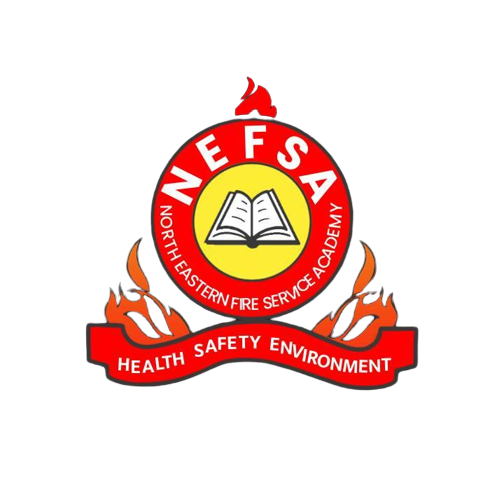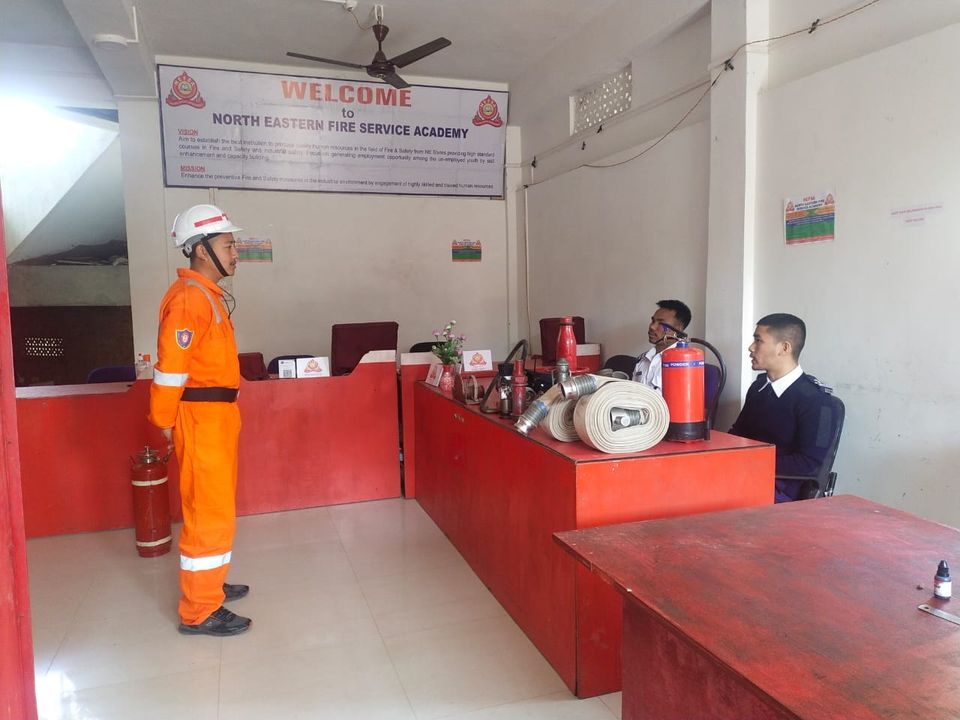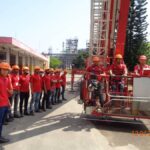India’s fire protection and safety ecosystem is expanding rapidly — driven by stricter building codes, faster urbanization, growth in high-risk industries (data centers, oil & gas, manufacturing), and wider adoption of smart detection and suppression systems. Market research predicts steady growth in India’s fire protection market over the coming years as IoT, smart sensors and automated suppression systems are adopted.
At the same time, the National Building Code remains the authoritative guideline for building design and fire safety requirements across the country meaning compliance is not optional for modern construction, and compliance creates steady demand for qualified fire-safety professionals.
Government and industry emphasis on training and capacity building (via national training centres and state academies) is also increasing — strengthening career pipelines for trained professionals.
Fast-growing sectors hiring fire & safety professionals
-
Industrial & Manufacturing — heavy industries, chemical plants and factories need full-time fire & safety teams.
-
Oil, Gas & Petrochemicals — persistent high-risk operations require highly trained safety engineers and supervisors.
-
Data centers & IT parks — escalating data center buildouts increase demand for specialized fire detection and suppression expertise. Global data-center fire protection market growth is strong, and India participates in that expansion.
-
Construction & Real Estate — developers must meet NBC and local fire norms, creating demand for fire consultants and compliance officers.
-
Hospitality, Healthcare & Retail — public-occupancy buildings need preventive systems, evacuation planning and periodic audits.
What employers want (skills & qualifications)
-
Practical fire-fighting & rescue skills: live-fire drills, SCBA use, ladder and search techniques.
-
Fire-safety engineering fundamentals: passive fire protection, detection & alarm systems, sprinklers, MEP coordination.
-
Risk assessment & incident investigation: HAZOP, LOPA basics for industrial roles.
-
Soft skills: report-writing, emergency planning, training & people management.
-
Technology literacy: familiarity with IoT sensors, VESDA/VES systems and automated suppression system interfaces.
Certifications that accelerate your career
-
NEBOSH (health & safety) / NEBOSH Fire-related certificates — globally recognized and popular in India for industrial safety roles.
-
Diplomas & advanced diplomas in Fire Safety / Fire Engineering from accredited Indian institutes (including regional/state fire training centres and national institutions).
-
Vendor/technology certifications (fire alarm, suppression system vendors, VESDA, etc.) — helpful for technical installation/maintenance jobs.
Salary expectations & career progression
Salaries vary widely depending on role, sector and experience. Entry-level safety officers and fire-fighting trainees typically start at modest pay, while experienced fire-safety engineers, consultants, and heads of safety in large industrial or energy companies command significantly higher compensation. (Market salary reports and job portals show a broad range — always check live listings for current pay benchmarks in your region and sector.)
Typical progression: Firefighter / Safety Executive → Safety Officer → Fire Safety Engineer / Safety Manager → Head of HSE / Fire Consultant → Specialist consultant / entrepreneur.
Emerging trends shaping future jobs
-
Smart & connected fire systems (IoT + AI): predictive analytics for early detection and remote monitoring will create roles that blend engineering and data-sensing skills.
-
Green energy & new fuels (H2, renewables): new fuel types and energy infrastructure will bring novel fire risks — specialists who understand these will be in demand.
-
Regulatory tightening & compliance auditing: as enforcement improves, many companies will need in-house or third-party fire compliance personnel.
-
Professionalization & certification: employers increasingly prefer certified candidates (NEBOSH, diplomas, accredited training).
How NEFSA Fire Academy prepares you for the future
(If you’re reading this for NEFSA’s website copy, use these points to explain NEFSA’s value.)
-
Hands-on training: live-fire modules, SCBA and rescue drills, and real-equipment handling to build operational readiness.
-
Industry-aligned curriculum: courses that map to NBC requirements, industrial safety needs, and globally recognized certifications (e.g., NEBOSH pathways).
-
Placement support & industry tie-ups: linkages with local industries, construction firms, and fire protection vendors to help trainees move into jobs.
-
Continued professional development: short courses, refresher modules and technology-focused workshops (IoT fire detection, data-center fire safety).
Practical steps to build a future-proof fire-safety career
-
Start with foundational training — an accredited diploma or certificate in fire & industrial safety.
-
Get certified — aim for NEBOSH or equivalent recognized certifications that increase employability.
-
Gain hands-on experience — internships, trainee firefighter roles or apprenticeships at training centres/industrial units help immensely.
-
Specialize — choose sector specializations (data centers, petrochemicals, high-rise building safety) or tech skills (VESDA, suppression systems).
-
Keep learning — technology and regulation evolve; continuous upskilling keeps you competitive.
Contact us today to know more about admissions, batch schedules, and course details.
Visit: www.nefsaindia.com
Location: Dibrugarh, Assam
For More Blogs:- Click here







